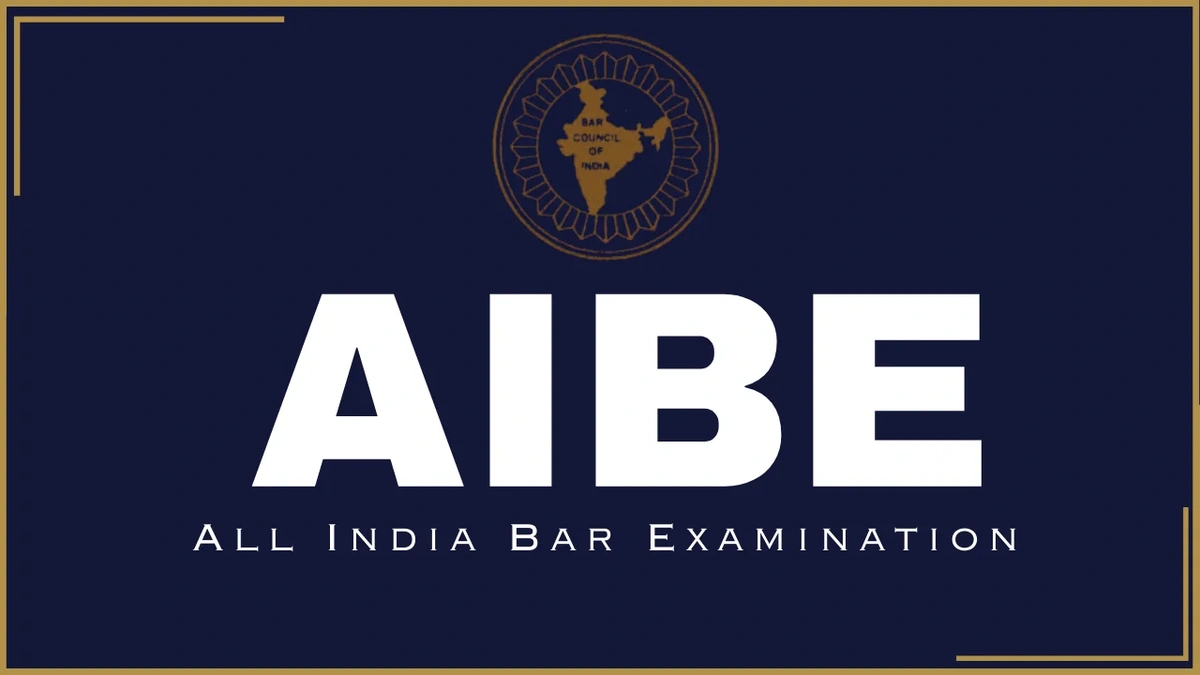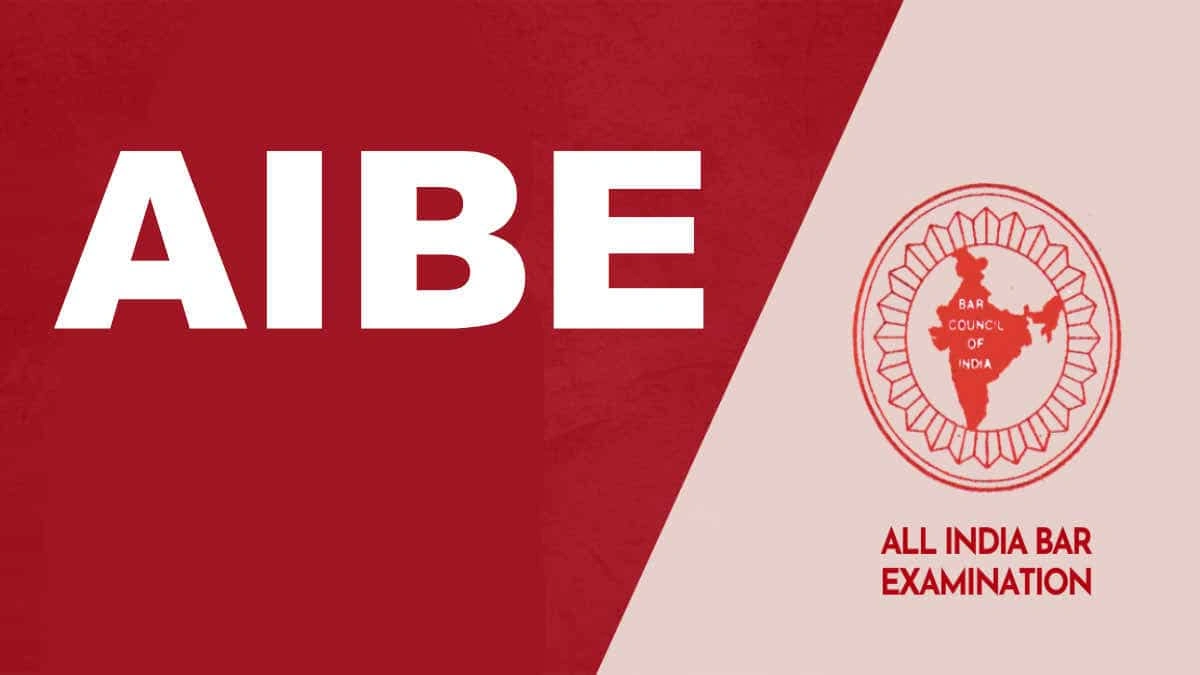Decoding AIBE | What It Really Means for Your Legal Career
The All India Bar Examination (AIBE) – it’s a phrase that can send shivers down the spines of even the most seasoned law graduates. But let’s be honest, it’s more than just an exam; it’s a gateway, a rite of passage, and – dare I say – a bit of a mystery for many aspiring lawyers in India. So, let’s dive deep and explore exactly what AIBE is all about. Forget the textbook definitions; we’re talking real-world implications, practical advice, and a bit of myth-busting along the way.
What AIBE Actually Tests (It’s Not What You Think)

Here’s the thing: AIBE isn’t just another law school exam. It’s designed to assess a lawyer’s ability to practice law in India. Think of it as a practical assessment of your understanding of the legal system, your ability to apply legal principles, and your overall competence as a legal professional. Now, according to the Bar Council of India (BCI) , the exam aims to ensure that lawyers entering the profession meet a minimum standard of competence. But what does that really mean?
It means you need to know your Constitution, your IPC, your CrPC, and a whole lot more. More importantly, you need to know how these laws interact and how to apply them in real-world scenarios. A common mistake I see people make is treating AIBE like a theoretical exam. It’s not. It’s about application. The one thing you absolutely must double-check is that you have all the Bare Acts handy; it’s an open book exam for a reason! Open book exam is one of the most searched queries regarding AIBE.
AIBE Exam Pattern & How to Crack It
Let’s talk strategy. The AIBE exam pattern generally consists of 100 multiple-choice questions, covering various subjects like Constitutional Law, Criminal Procedure Code, Indian Penal Code, and Evidence Act. According to the latest notification, there is no negative marking. But don’t let that fool you into thinking it’s a cakewalk! What fascinates me is how many students underestimate the depth of knowledge required. The questions aren’t designed to trick you; they’re designed to test your understanding. Also, note that the exam will be conducted offline only. So, you need to prepare yourself accordingly.
Cracking AIBE requires a smart approach:
- Focus on Core Subjects: Prioritize subjects with higher weightage in the exam.
- Master Bare Acts: Familiarize yourself with the Bare Acts of important laws. A common mistake I see people make is not bringing the correct editions.
- Practice Previous Year Papers: Solve previous year’s question papers to understand the exam pattern and difficulty level.
- Time Management: Practice answering questions within the stipulated time limit.
- Conceptual Clarity: Focus on understanding the underlying concepts rather than rote learning.
The Emotional Rollercoaster | Dealing with AIBE Anxiety
Let’s be honest – preparing for any exam can be stressful, and AIBE is no exception. That moment of panic when you feel like you’ve forgotten everything you studied? We’ve all been there. The key is to manage your anxiety and stay focused. Here are a few tips:
- Plan Your Study Schedule: Create a realistic study schedule and stick to it.
- Take Regular Breaks: Avoid burnout by taking regular breaks during your study sessions.
- Practice Relaxation Techniques: Practice deep breathing exercises or meditation to calm your nerves.
- Stay Positive: Believe in yourself and your abilities.
Remember, anxietyis a normal part of the process. It’s how you manage it that matters.
The “Why” | Why AIBE Matters for Your Career
So, why go through all this trouble? Why is AIBE so important? Well, simply put, it’s your license to practice law in India. Without clearing AIBE, you cannot enroll as an advocate and appear in court. It’s the gateway to a fulfilling and impactful legal career. But beyond the practicalities, AIBE also serves as a benchmark for competence. It ensures that lawyers entering the profession have a certain level of knowledge and skill, protecting the interests of clients and upholding the integrity of the legal system.
Here’s why this exam matters to you: it validates your skills. Passing AIBE demonstrates your understanding of the Indian legal system . It is the final hurdle standing between you and your career. As per the guidelines mentioned in the information bulletin, the candidate needs to score a minimum of 40% marks to qualify the examination.
What fascinates me is the perception some people have of AIBE being “easy.” While the pass percentage might be relatively high, it doesn’t mean you can waltz in unprepared. The exam requires a solid foundation in legal principles and the ability to apply them. So, buckle up and get ready to put in the work.
Common Mistakes to Avoid During AIBE Preparation
Alright, let’s talk about the pitfalls. Over the years, I’ve seen countless students make the same mistakes during AIBE preparation. Here are a few common blunders to avoid:
- Ignoring the Syllabus: Not covering the entire syllabus is a recipe for disaster.
- Rote Learning: Memorizing concepts without understanding them is ineffective.
- Neglecting Bare Acts: Not familiarizing yourself with the Bare Acts is a grave mistake.
- Poor Time Management: Not practicing time management can lead to unanswered questions.
- Lack of Revision: Not revising the concepts regularly can lead to forgetting important details.
A common mistake I see people make is underestimating the importance of Bare Acts. Remember, AIBE is an open-book exam, and your Bare Acts are your best friend. So, get familiar with them, annotate them, and use them effectively during the exam.
FAQ
Frequently Asked Questions about AIBE
What if I fail the AIBE exam?
You can reappear for the exam in the next session.
Can I use any books or notes during the exam?
Yes, it’s an open-book exam, but only Bare Acts are allowed.
What is the passing score for AIBE?
Generally, it is 40% for general category candidates.
How often is the AIBE conducted?
The AIBE is usually conducted twice a year.
Where can I find the official notification?
Check the Bar Council of India website. Accessthe official website for updates.
What happens after I clear the AIBE?
You will be awarded a Certificate of Practice, allowing you to practice law in India.
In conclusion, AIBE is more than just an exam; it’s a crucial step towards a successful legal career in India. By understanding the exam pattern, developing a smart preparation strategy, managing your anxiety, and avoiding common mistakes, you can increase your chances of success. So, embrace the challenge, put in the hard work, and get ready to embark on your journey as a legal professional. Remember, your ability to practice law is key, and AIBE is there to help you demonstrate that.













